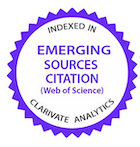Efeitos da alimentação de farelo de tungue (Aleurites fordii) bruto ou tratado na dieta de Rhamdia quelen sobre o crescimento, enzimas digestivas e parâmetros bioquímicos
DOI:
https://doi.org/10.1590/1809-6891v21e-46276Resumo
Resumo
Este estudo avaliou a adição de farelo de tungue (Aleurites fordii) na dieta de Rhamdia quelen, como uma alternativa à fontes de proteína animal. Juvenis de jundiá foram alimentados com diferentes dietas incluídas de farelo de tungue bruto, farelo quimicamente tratado e uma dieta controle sem farelo de tungue. O tratamento químico foi baseado na aplicação sequencial de soluções ácida e alcoólica e reduziu o conteúdo de ácido fítico de 1,63% para 0,61% e o conteúdo de taninos condensados de 0,025% para 0,018%. A resposta nutricional dos peixes à estes ingredientes foi avaliada ao longo de nove semanas, baseado no crescimento, atividade de enzimas digestivas e respostas bioquímicas. Após nove semanas, a dieta contendo farelo de tungue bruto causou reduzido crescimento (peso: -57,9%; comprimento total: -21,09%; taxa de crescimento específico: -99,74%). Esta dieta também reduziu a atividade de protease ácida e lipase, reduziu concentrações de glicose, colesterol e triglicerídeos no plasma e concentrações de glicogênio e glicose no fígado. No entanto, após nove semanas, os peixes alimentados com farelo de tungue tratado mostraram maior crescimento (peso, comprimento total e taxa de crescimento específico igual ao controle) e poucas alterações metabólicas, possivelmente devido a remoção de antinutrientes e substâncias tóxicas. Ao nível de 32% de inclusão, o farelo de tungue quimicamente tratado pode ser considerado uma fonte de proteína alternativa para o jundiá.
Palavras-chave: Co-produtos agroindustriais. Proteína alternativa. Parâmetros bioquímicos. Resposta de crescimento. Jundiá.
Downloads
Referências
IBGE - Instituto Brasileiro de Geografia e Estatística. Produção Agrícola Municipal 2015. Acesso em 16 de janeiro de 2017. Disponível em: http://cidades.ibge.gov.br/comparamun /compara.php?lang=&coduf=43&idtema=157&codv=v161&search=rio-grande-do-sul|bento-goncalves|sintese-das-informacoes-2015
» http://cidades.ibge.gov.br/comparamun /compara.php?lang=&coduf=43&idtema=157&codv=v161&search=rio-grande-do-sul|bento-goncalves|sintese-das-informacoes-2015
dos Anjos e Silva SD, de Ávila DT, Aires RF, de Ávila TT. Desempenho agronômico de plantios comerciais de tungue no Rio Grande do Sul. Empresa Brasileira de Pesquisa Agropecuária. Boletim de Pesquisa e Desenvolvimento, n. 186, 2013. Disponível em: https://www.infoteca.cnptia.embrapa.br/bitstream/doc/992696/1/Boletim186web.pdf Português
» https://www.infoteca.cnptia.embrapa.br/bitstream/doc/992696/1/Boletim186web.pdf
Hardy R. Utilization of plant in fish diets: effects of global demand and supplies of fishmeal. Aquaculture Research, 2010; 41(5):770-776. Disponível em: http://onlinelibrary.wiley.com/doi/10.1111/j.1365-2109.2009.02349.x/epdf
» http://onlinelibrary.wiley.com/doi/10.1111/j.1365-2109.2009.02349.x/epdf
Francis G, Makkar HPS, Becker K. Antinutritional factors present in plant-derived alternate fish feed ingredients and their effects in fish. Aquaculture, 2001; 199(3-4:197-227. Disponível em: http://ac.els-cdn.com/S0044848601005269/1-s2.0-S0044848601005269-main.pdf?_tid=ade1517e-f8f1-11e6-ae06-00000aacb361&acdnat=1487762937_05aa894ea37117527d1b01f87243ed20
Mann GE, Hoffman WH, Ambrose AM. Detoxification and toxicological studies of tung meal. Journal of Agricultural and Food Chemistry, 1954; 2:258-263.
Kumar V, Sinha AK, Makkar HPS, De Boeck G, Becker K. Phytate and phytase in fish nutrition. Journal of Animal Physiology and Animal Nutrition, 2012; 96(3):335-364. Disponível em: http://onlinelibrary.wiley.com/doi/10.1111/j.1439-0396.2011.01169.x/epdf
» http://onlinelibrary.wiley.com/doi/10.1111/j.1439-0396.2011.01169.x/epdf
Pretto A, Silva LP, Goulart FR, Battisti EK, Loureiro BB, Eggers DP, Pianesso D. Farelo de tungue in natura ou detoxificado na alimentação de carpa húngara (Cyprinus carpio). Arquivo Brasileiro de Medicina Veterinária e Zootecnia, 2014; 66(6):1891-1900. Disponível em: http://www.scielo.br/pdf/abmvz/v66n6/0102-0935-abmvz-66-06-01891.pdf Português
» http://www.scielo.br/pdf/abmvz/v66n6/0102-0935-abmvz-66-06-01891.pdf
Makkar HPS. Quantification of Tannins in Tree Foliage. 2000. Acesso em 10 de janeiro de 2017. Disponível em: http://central-lab.tabrizu.ac.ir/Files/manual-tannin%2001.pdf
» http://central-lab.tabrizu.ac.ir/Files/manual-tannin%2001.pdf
Latta M, Eskin M. A simple and rapid colorimetric method for phytate determination. Journal of Agricultural and Food Chemistry, 1980; 28:1313-1315.
Dias DR, Abreu CMP, Silvestre MP, Schwan RF. In vitro protein digestibility of enzymatically pre-treated bean (Phaseolus vulgaris L.) flour using commercial protease and Bacillus sp. protease. Food Science and Technology, 2010; 30(1):94-99. Disponível em: http://www.scielo.br/pdf/cta/v30n1/aop_3218.pdf
» http://www.scielo.br/pdf/cta/v30n1/aop_3218.pdf
Association of Official Analytical Chemists. Official Methods of Analysis, 16ª ed. Washington: Association of Official Analytical Chemists. 1995. 1137p.
Bligh EG, Dyer WJ. A rapid method of total lipid extraction and purification. Canadian Journal of Biochemistry and Physiology, 1959; 37(8):911-917. Disponível em: http://www.nrcresearchpress.com/doi/pdf/10.1139/o59-099
» http://www.nrcresearchpress.com/doi/pdf/10.1139/o59-099
Van Soest PJ, Robertson JB, Lewis BA. Symposium: carbohydrate methodology, metabolism, and nutritional implications in dairy cattle. Journal of Dairy Science, 1991; 74:3583-3597. Disponível em: http://webpages.icav.up.pt/ptdc/CVT/098487/2008/Van%20Soest,%201991.pdf
» http://webpages.icav.up.pt/ptdc/CVT/098487/2008/Van%20Soest,%201991.pdf
Baginski ES, Slawa SM, Zak B. Phosphate, inorganic. In Baginski ES. Selected Methods of Clinical Chemistry. Washington: American Association Clinic Chemistry; 1982. p. 313-316
Montes-Girao PJ, Fracalossi DM. Dietary lysine requirement as basis to estimate the essential dietary amino acid profile for jundiá, Rhamdia quelen Journal of the World Aquaculture Society, 2006; 37(4):388-396. Disponível em: http://onlinelibrary.wiley.com/doi/10.1111/j.1749-7345.2006.00 052.x/epdf
» http://onlinelibrary.wiley.com/doi/10.1111/j.1749-7345.2006.00 052.x/epdf
Meyer G, Fracalossi DM, Borba MR. A importância da quantidade de energia na ração de peixes. Panorama da Aquicultura, 2004; 14:53-57. Disponível em: http://www.panoramadaaquicultura.com. br/ paginas/revistas/83/energia83.asp Português
» http://www.panoramadaaquicultura.com. br/ paginas/revistas/83/energia83.asp
Verdouw H, Vanechteld CJA, Deckkers EMJ. Ammonia determinations based on indophenol formation with sodium salicylate. Water Research, 1978; 12(6):399-402. Disponível em: http://ac.els-cdn.com/0043135478901070/1-s2.0-0043135478901070-main.pdf?_tid=b960836a-f8f3-11e6-bd08-00000aab0f27&acdnat=1487763815_2d8acf1cc17106157e2fb8ab96625132
Boyd CE, Tucker CS. Water quality and pond soil analysis for aquaculture. Alabama: Alabama Agricultural Experiment Station, Auburn University; 1992. 183p.
Baldisserotto B, Silva LVF. Qualidade da água. In Baldisserotto B, Radünz Neto J. Criação do jundiá. Santa Maria: Editora da UFSM; 2004. p. 73-92.
Cunha MA, Zeppenfeld CC, Garcia LO, Loro VL, Fonseca MB, Emanuelli T, Veeck APL, Copatti CE, Baldisserotto B. Anesthesia of silver catfish with eugenol: time of induction, cortisol response and sensory analysis of fillet. Ciência Rural, 2010; 40(10):2107-2114. Disponível em: http://www.scielo.br/pdf/cr/v40n10/a722cr3388.pdf
» http://www.scielo.br/pdf/cr/v40n10/a722cr3388.pdf
Hidalgo M C, Urea E, Sanz A. Comparative study of digestive enzymes in fish with different nutritional habits. Proteolytic and amylase activities. Aquaculture, 1999; 170(3-4):267-283. Disponível em: http://ac.els-cdn.com/S004484869800413X/1-s2.0-S004484869800413X-main.pdf?tid=03ea30b6-f8f4-11e6-8d62-00000aab0f6b&acdnat=1487763940d287aef9656e9da19374d853b80a 463d
Hummel BCW. A modified spectrophotometric determination of chymotrypsin, trypsin and thrombin. Canadian Journal of Biochemistry and Physiology, 1959; 37:1393-1399.
Park JT, Johnson MJ. A submicro determination of glucose. Journal of Biological Chemistry, 1949; 181:149-151. Disponível em: http://www.jbc.org/content/181/1/149.long
» http://www.jbc.org/content/181/1/149.long
Gawlicka A, Parent B, Horn MH, Ross N, Opstad I, Torrissen OJ. Activity of digestive enzymes in yolk-sac larvae of Atlantic halibut (Hippoglossus hippoglossus): indication of readiness for first feeding. Aquaculture, 2000; 184(3-4):303-314. Disponível em: http://ac.els-cdn.com/S004484869900 3221/1-s2.0-S0044848699003221-main.pdf?_tid=7dbce91a-f8f4-11e6-8435-00000aacb35d&acdnat= 1487764144_3594a7efdbeebdebb9dfcbbf6250f50e
» http://ac.els-cdn.com/S004484869900 3221/1-s2.0-S0044848699003221-main.pdf?_tid=7dbce91a-f8f4-11e6-8435-00000aacb35d&acdnat= 1487764144_3594a7efdbeebdebb9dfcbbf6250f50e
Bradford MMA. A rapid and sensitive method for the quantification of microgram quantities of protein utilizing the principle of protein-dye binding. Analytical Biochemistry, 1976; 72(1-2):248-254. Disponível em: http://ac.els-cdn.com/0003269776905273/1-s2.0-0003269776905273-main.pdf?tid=99ee3486-f8f4-11e6-8b5f-00000aacb35f&acdnat=1487764192_2ff941d898dbbee8b1a1e252654098d5
Bidinotto PM, Moraes G, Souza RHS. Hepatic glycogen and glucose in eight tropical freshwater teleost fish: A procedure for field determinations of micro samples. Boletim Técnico do CEPTA, 1997; 10:53-60. Disponível em: http://www.icmbio.gov.br/cepta/images/stories/producaocientifica/he patic199701.pdf
» http://www.icmbio.gov.br/cepta/images/stories/producaocientifica/he patic199701.pdf
Dubois MG, Gilles KA, Hamilton JK, Roberts PA, Smith F. Colorimetric method for determination of sugars and related substances. Analytical Chemistry, 1956; 28:350-358.
Naczk M, Shahidi F. Extraction and analysis of phenolics in food. Journal of Chromatography A, 2004; 1054(1-2):95-111. Disponível em: http://ac.els-cdn.com/S0021967304014098/1-s2.0-S0021967304014098-main.pdf?_tid=d68f7756-f8f4-11e6-a7b0-00000aacb362&acdnat=1487764293_6fdfec3c9 ebe7888abeb7f1bf54da26e
» http://ac.els-cdn.com/S0021967304014098/1-s2.0-S0021967304014098-main.pdf?_tid=d68f7756-f8f4-11e6-a7b0-00000aacb362&acdnat=1487764293_6fdfec3c9 ebe7888abeb7f1bf54da26e
Silva MR, Silva MAAP. Aspectos nutricionais de fitatos e taninos. Revista de Nutrição, 1999; 12(1): 5-19. Disponível em: http://www.scielo.br/pdf/rn/v12n1/v12n1a02.pdf
» http://www.scielo.br/pdf/rn/v12n1/v12n1a02.pdf
Hassas-Roudsari M, Chang PR, Pegg RB, Tyler RT. Antioxidant capacity of bioactives extracted from canola meal by subcritical water, ethanolic and hot water extraction. Food Chemistry, 2009; 114(2):717-726. Disponível em: http://ac.els-cdn.com/S0308814608011928/1-s2.0-S0308814608011928-main.pdf?_tid=1ee2fdfc-f8f5-11e6-8367-00000aacb360&acdnat=1487764415_17d7c725f3a0050c 3bdc837ada859b63
» http://ac.els-cdn.com/S0308814608011928/1-s2.0-S0308814608011928-main.pdf?_tid=1ee2fdfc-f8f5-11e6-8367-00000aacb360&acdnat=1487764415_17d7c725f3a0050c 3bdc837ada859b63
Han YW. Removal of phytic acid from soybean and cottonseed meals. Journal of Agricultural and Food Chemistry, 1988; 36:1181-1183.
Saad N, Esa NM, Ithnin H, Shafie NM. Optimization of optimum condition for phytic acid extraction from rice bran. African Journal of Plant Science, 2011; 5(3):168-176. Disponível em: http://www.academicjournals.org/article/article1379945219_Saad%20et%20al.pdf
» http://www.academicjournals.org/article/article1379945219_Saad%20et%20al.pdf
Cheng Z, Ai Q, Mai K, Xu W, Ma H, Li Y, Zhang J. Effects of dietary canola meal on growth performance, digestion and metabolism of Japanese seabass, Lateolabrax japonicus Aquaculture, 2010; 305(1-4):102-108. Disponível em: http://ac.els-cdn.com/S0044848610002036/1-s2.0-S0044848610002036-main.pdf?_tid=85d06c98-f8f5-11e6-8a58-00000aacb362&acdnat=1487764587 106613e4be9f293c940d89085ebb9c89
» http://ac.els-cdn.com/S0044848610002036/1-s2.0-S0044848610002036-main.pdf?_tid=85d06c98-f8f5-11e6-8a58-00000aacb362&acdnat=1487764587 106613e4be9f293c940d89085ebb9c89
Bilgüven M, Baris M. Effects of the feeds containing different plant protein sources on growth performance and body composition of rainbow trout (Oncorhynchus mykiss, W.). Turkish Journal of Fisheries and Aquatic Sciences, 2011; 11:345-350. Disponível em: http://www.trjfas.org/uploads/pdf 581.pdf
» http://www.trjfas.org/uploads/pdf 581.pdf
Kumar V, Makkar HPS, Becker K. Detoxified Jatropha curcas kernel meal as a dietary protein source: growth performance, nutrient utilization and digestive enzymes in common carp (Cyprinus carpio L.) fingerlings. Aquaculture Nutrition, 2011; 17(3):313-326. Disponível em: http://onlinelibrary .wiley.com/ doi/10.1111/j.1365-2095.2010.00777.x/epdf
» http://onlinelibrary .wiley.com/ doi/10.1111/j.1365-2095.2010.00777.x/epdf
Kumar V, Makkar HPS, Amselgruber W, Becker K. Physiological, haematological and histopatological responses in common carp (Cyprinus carpio L.) fingerlings fed with differently detoxified Jatropha curcas kernel meal. Food and Chemical Toxicology, 2010; 48(8-9):2063-2072. Disponível em: http://ac.els-cdn.com/S0278691510002826/1-s2.0-S0278691510002826-main.pdf?tid=f3e9f60e-f8f5-11e6-93a9-00000aab0f01&acdnat=1487764772_ff3500a5a7e6f0618b8afc50589b27bc
Lundstedt LM, Melo JFB, Moraes G. Digestive enzymes and metabolic profile of Pseudoplatystoma corruscans (Teleostei: Siluriformes) in response to diet composition. Comparative Biochemistry and Physiology Part B, 2004; 137(3):331-339. Disponível em: http://ac.els-cdn.com/S1096495903003828/1-s2.0-S1096495903003828-main.pdf?_tid=a6295a44-f8f6-11e6-935b-00000aab0f27&acdnat=1487765071_a1cb194c9a4433f126efbc9e9fe5a295
Lin S, Luo L. Effects of different levels of soybean meal inclusion in replacement for fish meal on growth, digestive enzymes and transaminase activities in practical diets for juvenile tilapia, Oreochromis niloticus x O. aureus Animal Feed Science and Technology, 2011; 168(1-2):80-87. Disponível em: http://ac.els-cdn.com/S0377840111001118/1-s2.0-S0377840111001118-main.pdf?tid=d37ab0ba-f8f6-11e6-9437-00000aab0f27&acdnat=1487765147c4f24767df7108abdae4b2b0ac2b6077
Maytra S, Ray AK. Inhibition of digestive enzymes in rohu, Labeo rohita (Hamilton), fingerlings by tannin: an in vitro study. Aquaculture Research, 2003; 34(1):93-95. Disponível em: http://onlinelibrary.wiley.com/doi/10.1046/j.1365-2109.2003.00792.x/epdf
» http://onlinelibrary.wiley.com/doi/10.1046/j.1365-2109.2003.00792.x/epdf
Rodiles A, Santigosa E, Herrera M, Hachero-Cruzado I, Cordero ML, Martínez-Llorens I, Lall SP, Alarcón FJ. Effect of dietary protein level and source on digestive proteolytic enzyme activity in juvenile Senegalese sole, Solea senegalensis Kaup 1850. Aquaculture International, 2012; 20(6):1053-1070. Disponível em: http://download.springer.com/static/pdf/175/art%253A10.1007%252Fs10499-012-9508-6.pdf?originUrl=http%3A%2F%2Flink.springer.com%2Farticle%2F10.1007%2Fs10499-012-9508-6&token2=exp=1487766305~acl=%2Fstatic%2Fpdf%2F175%2Fart%25253A10.1007%25252Fs10499-012-9508-6.pdf%3ForiginUrl%3Dhttp%253A%252F%252Flink.springer.com%252Farticle%252F10.1007%252Fs10499-012-9508-6*~hmac=878f9c64f722d8add3e535e07b8d4268d6eb1 de2964bb300afb1ecbe325a266
Kader MdA, Bulbul M, Koshio S, Ishikawa M, Yokoyama S, Nguyen BT, Komilus CF. Effect of complete replacement of fishmeal by dehulled soybean meal with crude attractants supplementation in diets for red sea bream, Pagrus major Aquaculture, 2012; 350-353:109-116. Disponível em: http://ac.els-cdn.com/S004484861200213X/1-s2.0-S004484861200213X-main.pdf?_tid=52cee048-f8f7-11e6-8da0-00000aab0f6c&acdnat=1487765361_fa6a2f31acb112317f430b09d538a597
Fournier V, Huelvan C, Desbruyeres E. Incorporation of a mixture of plant feedstuffs as substitute for fish meal in diets of juvenile turbot (Psetta maxima). Aquaculture, 2004; 236(1-4):451-465. Disponível em: http://ac.els-cdn.com/S004484860400081X/1-s2.0-S004484860400081X-main.pdf?tid=70e6539a-f8f7-11e6-ba97-00000aab0f26&acdnat=1487765411_6d7897869fcbaae77dbd49bbad 2ece40
Regost C, Arzel J, Kaushik SJ. Partial or total replacement of fish meal by corn gluten meal in diet for turbot (Psetta maxima). Aquaculture, 1999; 180(1-2):99-117. Disponível em: http://ac.els-cdn.com/S0044848699000265/1-s2.0-S0044848699000265-main.pdf?_tid=8c74ada0-f8f7-11e6-867a-00000aab0f6c&acdnat=1487765457_2e466335879af0a39f99a638f2dd8f9d
Elangovan A, Shim KF. The influence of replacing fish meal partially in the diet with soybean meal on growth and body composition of juvenile tin foil barb (Barbodes altus). Aquaculture, 2000; 189(1-2):133-144. Disponível em: http://ac.els-cdn.com/S0044848600003653/1-s2.0-S0044848600003653-main.pdf?_tid=a8c8defe-f8f7-11e6-819c-00000aacb35e&acdnat=14877655056f1e8788090467e aaba2e5e93c335b45
» http://ac.els-cdn.com/S0044848600003653/1-s2.0-S0044848600003653-main.pdf?_tid=a8c8defe-f8f7-11e6-819c-00000aacb35e&acdnat=14877655056f1e8788090467e aaba2e5e93c335b45
Kaushik SJ, Covès D, Dutto G, Blanc D. Almost total replacement of fish meal y plant protein sources in the diet of a marine teleost, the European seabass, Dicentrarchus labrax Aquaculture, 2004; 230:391-404. Disponível em: http://webpages.icav.up.pt/ptdc/CVT-NUT/4294/2012/Kaushick %202004.pdf
» http://webpages.icav.up.pt/ptdc/CVT-NUT/4294/2012/Kaushick %202004.pdf
Downloads
Publicado
Como Citar
Edição
Seção
Licença
Copyright (c) 2020 Ciência Animal Brasileira

Este trabalho está licenciado sob uma licença Creative Commons Attribution 4.0 International License.
Autores que publicam nesta revista concordam com os seguintes termos:
- Autores mantém os direitos autorais e concedem à revista o direito de primeira publicação, com o trabalho simultaneamente licenciado sob a Licença Creative Commons Attribution que permite o compartilhamento do trabalho com reconhecimento da autoria e publicação inicial nesta revista.
- Autores têm autorização para assumir contratos adicionais separadamente, para distribuição não-exclusiva da versão do trabalho publicada nesta revista (ex.: publicar em repositório institucional ou como capítulo de livro), com reconhecimento de autoria e publicação inicial nesta revista.
- Autores têm permissão e são estimulados a publicar e distribuir seu trabalho online (ex.: em repositórios institucionais ou na sua página pessoal) a qualquer ponto antes ou durante o processo editorial, já que isso pode gerar alterações produtivas, bem como aumentar o impacto e a citação do trabalho publicado (Veja O Efeito do Acesso Livre).






























